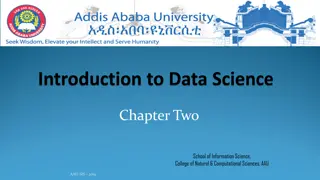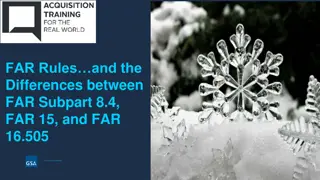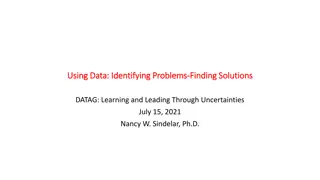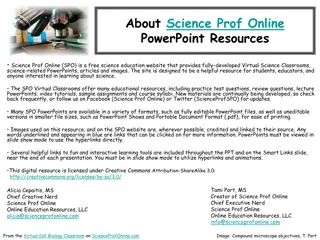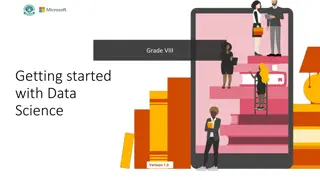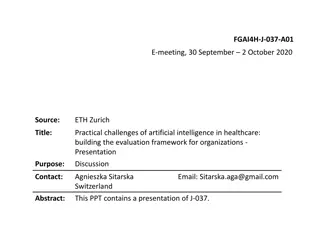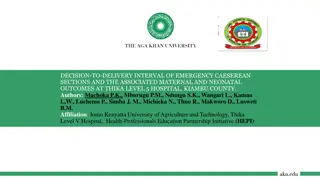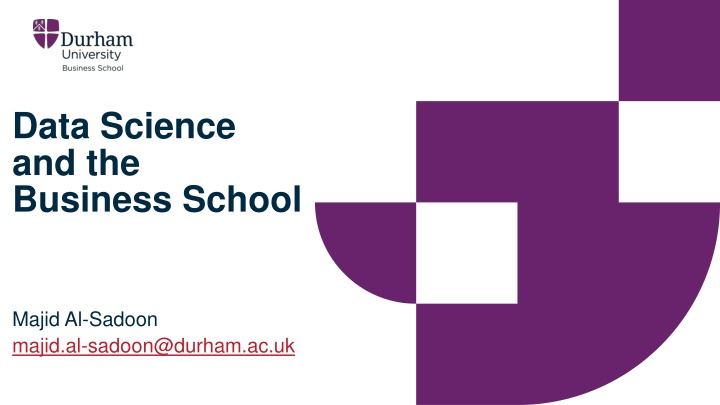
Data Science in Business Schools and Financial Markets
Explore research questions on economic policy, financial markets, and community detection in non-stationary data. Discover insights on market microstructure, data science, and machine learning in finance. Engage with cutting-edge topics in economics and high-frequency trading.
Download Presentation

Please find below an Image/Link to download the presentation.
The content on the website is provided AS IS for your information and personal use only. It may not be sold, licensed, or shared on other websites without obtaining consent from the author. If you encounter any issues during the download, it is possible that the publisher has removed the file from their server.
You are allowed to download the files provided on this website for personal or commercial use, subject to the condition that they are used lawfully. All files are the property of their respective owners.
The content on the website is provided AS IS for your information and personal use only. It may not be sold, licensed, or shared on other websites without obtaining consent from the author.
E N D
Presentation Transcript
Data Science and the Business School Majid Al-Sadoon majid.al-sadoon@durham.ac.uk
Research Questions: Introduction Why are some countries rich and others poor? What causes the business cycle? What should be the aim of economic policy? Are financial markets efficient/predictable? What is an optimal portfolio? How to quantify risk?
Community Detection in Non-Stationary Data majid.al-sadoon@durhamac.uk Economic and financial data can be highly persistent High-dimensional analysis of co-trending time series Local level model ??= ?? 1+ ??, ??= ??+ ??, ??~?(0,?) ??~?(0,?) Stochastic Block Model generates communities of co-trending time series Spectral clustering retrieves the communities in SBM
Market Microstructure, Data Science and Machine Learning applied to Finance, Experimental Economics arze.karam@durham.ac.uk Non-Standard Errors: uncertainty generated by methodology 164 teams test six hypotheses on the same sample. High frequency trading and liquidity crisis Maching learning applied to high frequency data for predicting market crashes Covid-19 crashes in March 2020 and the 2010 flash crash



